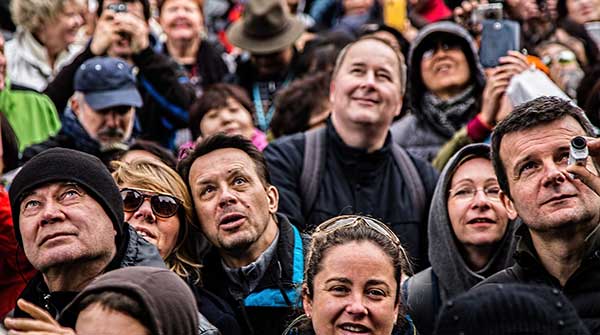It is important to never stop questioning
 Last week, someone asked me where my ideas come from for my novels. And why I choose to write suspense novels. The answer might surprise you … I am insatiably curious!
Last week, someone asked me where my ideas come from for my novels. And why I choose to write suspense novels. The answer might surprise you … I am insatiably curious!
My inquirer asked if curiosity was taking a back seat lately to the idea of compliance. Although I am not sure I want to dive into that slippery slope of compliant thinking at this time, I am happy to chat about curiosity.
If Newton hadn’t wondered about what makes an apple fall to the ground, he wouldn’t have discovered gravity. As children, we’re usually full of ceaseless curiosity, just like Newton. But as we grow up, that tends to fade as we confront the lists of things we need to accomplish each day.
As Albert Einstein said, “The important thing is not to stop questioning. Curiosity has its own reason for existing. One cannot help but be in awe when one contemplates the mysteries of eternity, of life, of the marvellous structure of reality. It is enough if one tries merely to comprehend a little of this mystery every day.”
 |
| Related Stories |
| Learn to take life’s ups and downs in stride
|
| Five ways to build your self-esteem
|
| Six simple steps to living on your own terms |
Cultivating your curiosity can also help you to:
- Maintain your mental health. Curious people are mentally agile and less likely to suffer from age-related illnesses such as Dementia and Alzheimer’s. This is because the acts of wondering and pondering create new neural pathways in the brain.
- Be more creative. Curiosity is what drives writers and artists – like me. We use curiosity to explore our world and create worlds for others to enjoy. Young children are also driven by curiosity: it’s their way to learn about the world they inhabit. They are full of questions.
- Feel happier. Happiness is deeply linked to curiosity. As indicated in studies by Martin Seligman and Todd Kashdan at George Mason University, curious people are happy people. They’re never bored or boring. They’re always alert and will take the time to look up at the stars and watch the sunset. According to Kashdan, curious people are less likely to derive pleasure from hedonistic activities such as drinking and gambling. Mysteries and marvels are their cups of tea. They’re highly self-motivated and willing to try new things. And the more they discover, the more they want to discover.
Here are some ideas to help re-ignite your natural curiosity:
- Try something new. A sport, a craft, or even a new genre of literature will fit the bill.
- Always remember to ask why, what, where, and how?
- Ask silly questions.
- Remember that every experience helps you expand your horizons.
- Be passionate about something. It’s never too late to find an activity that inspires you.
- Spend some time with children. Their natural curiosity will rub off on you.
Perhaps these mysteries will help you stimulate your natural curiosity:
- In The Mind of the Dolphin, John Lily, the pioneer American investigator of dolphin intelligence, claims that dolphins’ acute sense of sound may allow them to see each other’s internal organs. A bundle of some 125,000 nerve fibres links the dolphin’s ears to its brain. We only have about 50,000. Lily suggests that a lovesick dolphin might tell his beloved: “Darling, you do have the cutest way of twitching your sinuses when you say you love me. I love the shape of your vestibular sacs.”
- The Great Pyramid has intrigued mankind throughout the centuries. It’s not considered to be a tomb for a pharaoh as no mummy was found inside the sarcophagus, nor were there the usual burial artifacts or hieroglyphics. According to ancient Egyptian texts, the Great Pyramid was used as the initiation chamber for the Mysteries. The initiate would lie in the sarcophagus for many hours and be born again. The very shape of the pyramid is believed to possess the power to charge water, preserve food, enhance sleep, and more.
Are you curious yet?
A close examination of anything will spark your curiosity, and make you smarter and happier, too!
Faith Wood is a novelist and professional speaker who focuses on helping groups and individuals navigate conflict, shift perceptions and improve communications.
For interview requests, click here.
The opinions expressed by our columnists and contributors are theirs alone and do not inherently or expressly reflect the views of our publication.
© Troy Media
Troy Media is an editorial content provider to media outlets and its own hosted community news outlets across Canada.

